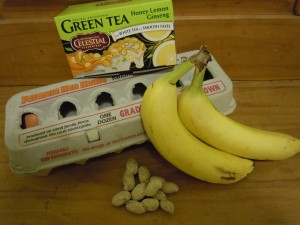Compost is one of those miracles of the garden: the transformation of kitchen scraps, leaves and grass clippings into a highly valued organic material that also keeps items out of the landfill.
Every winter, I make a path through the snow to my compost pile in the backyard, as I add eggshells, banana peels, peanut shells, tea bags and other compostables, even during the coldest days of the year.
I know the mix isn’t optimal during this time.
Iowa State University Extension notes that compost piles should be constructed in layers. Going overboard with any needed material can slow decomposition.
Leaves contain high levels of carbon and small amounts of nitrogen. A compost pile composed mainly of leaves decomposes slowly because the leaves don’t contain adequate levels of nitrogen for the microbes.
To promote decomposition, ISU suggests mixing leaves with grass clippings or other materials high in nitrogen. As grass clippings are in short supply at this time of year, fruit and vegetable peels are a good alternative nitrogen source. Dry items, such as straw, pine needles and paper napkins, supply carbon.
If possible, shred leaves before composting. The smaller the size of the material, the faster it will decompose. Each 6- to 8-inch-layer of plant material should be topped with 1 inch of soil or compost.
Finally, ISU recommends watering the pile regularly and turning it about once every two weeks, two things that I also neglect in the winter.
Come spring, though, I know I’ll have “black gold” to work into my garden, providing organic matter and micronutrients that make the soil, and plants, healthier.
Expert Advice
If you want more information on compost, or hundreds of other gardening topics, you’re in luck. For three decades, ISU horticulturists have answered lawn and garden questions from the public via phone and email.
Those questions have been collected and assembled into a Frequently Asked Question website, where you can find answers to more than 750 commonly asked gardening questions. Search for topics such as vegetables, fruits, annuals, perennials, roses, bulbs, lawns, trees, shrubs and indoor plants at the new site at: http://expert.hort.iastate.edu


No Comments Yet